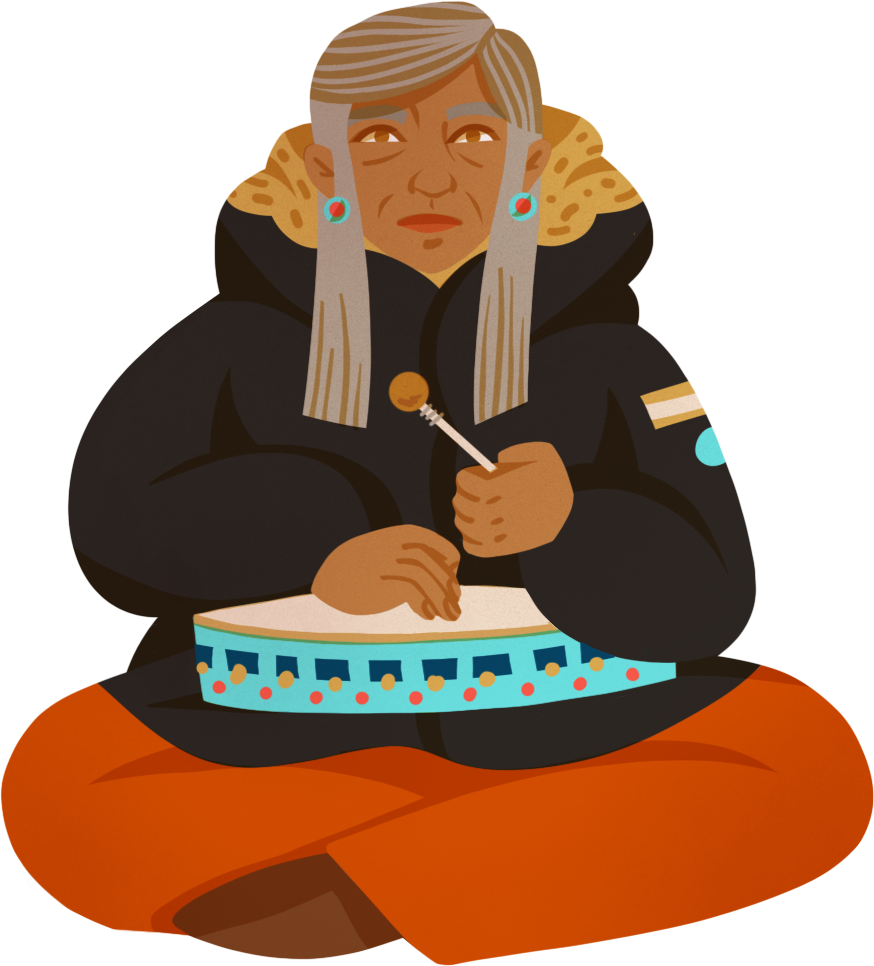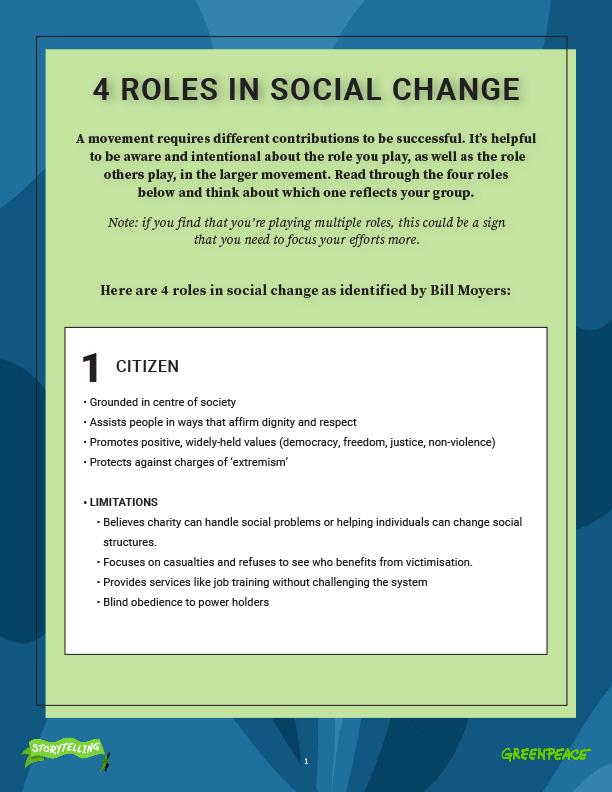HANDOUT: 4 ROLES IN SOCIAL CHANGE

A movement requires different contributions to be successful. It’s helpful to be aware and intentional about the role you play, as well as the role others play, in the larger movement. Read through the four roles below and think about which one reflects your group.
Note: if you find that you’re playing multiple roles, this could be a sign that you need to focus your efforts more.
Here are 4 roles in social change as identified by Bill Moyers:
1
CITIZEN
- Grounded in centre of society
- Assists people in ways that affirm dignity and respect
- Promotes positive, widely-held values (democracy, freedom, justice, non-violence)
- Protects against charges of ‘extremism’
Limitations:
- Believes charity can handle social problems or helping individuals can change social structures.
- Focuses on casualties and refuses to see who benefits from victimisation.
- Provides services like job training without challenging the system
- Blind obedience to power holders
2
REFORMERS
- Uses mainstream institutions like courts, city hall, legislatures to get new goals and values adopted.
- Uses lobbying, lawsuits, elite networking/coalition-building
- Monitors successes to make sure they are implemented
Limitations:
- ‘Realistic politics’ – Minor reforms that are acceptable to power holders
- Promotes domination by top-down professional advocacy groups
- More concerned with org’s status than goal of social movement
- Identifies more with power holders than with grassroots (co-optation risk)
- Does not advocate paradigm shift
3
REBEL
- Protests: says ‘no’ to violations of positive values
- Employs nonviolent direct action and attitude, including civil disobedience
- Targets power-holders and institutions
- Puts problems and policies in public spotlight
- Uses strategy as well as tactics
- Does work that is courageously exciting, risky
- Shows in behaviour the moral superiority of movement values
Limitations:
- Anti-leadership, anti-organisation
- Identity as lonely voice on the fringe
- Uses tactics without a realistic strategy
- Has victim attitude & behaviour: angry, judgemental, dogmatic
- Self-righteous, absolute truth, moral superiority
- Personal needs more important than movement needs
4
CHANGE AGENT
- Believes in people power: builds mass-based grassroots groups, networks
- Nurtures growth of natural leaders
- Chooses strategies for long-term movement development
- Uses training to build skills, democratise decisions, diversify and broaden org and coalitions
- Promotes alternatives and paradigm shifts
Limitations:
- Utopian: visions of perfectionism disconnected from current movement needs
- Dogmatic: single approach
- Uses tactics without a realistic strategy
- Ignores the needs of activists
- Disengages from movement to live isolated, alternative lifestyle
From Bill Moyers’ DOING DEMOCRACY
DOWNLOAD THIS HANDOUT

